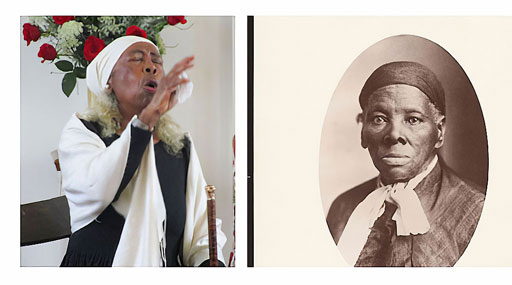
“Lent” comes from the Anglo-Saxon word “lencton” – meaning “spring” or “lengthening” from the time of year when the days grow long. The season begins on Ash Wednesday and ends with the Easter Triduum (Maundy Thursday through Easter Day), covering 40 days (excluding Sundays which are little feasts of the Resurrection). There are three key ideas to Lent:
1 Lent is in imitation of Christ -Early Christians observed “a season of penitence and fasting” in preparation for the Paschal feast, or Pascha (BCP, pp. 264-265). The season now known as Lent (from an Old English word meaning “spring,” the time of lengthening days) has a long history. Originally, in places where Pascha was celebrated on a Sunday, the Paschal feast followed a fast of up to two days. In the third century this fast was lengthened to six days. Eventually this fast became attached to, or overlapped, another fast of forty days, in imitation of Christ’s fasting in the wilderness. 40 is also connected to Moses’ 40 days with God on Mount Sinai, and Elijah’s 40 days of
2 Lent is for preparing for baptism – Easter has been the high point and culmination of the Christian year in remembrance and celebration of Jesus’s resurrection and, consequently, of our redemption. As such, Easter was regarded from the earliest times as the most appropriate time for persons to enter the church through the sacrament of baptism.
Four elements leading to baptism were developed – entering, prayer/growth, illumination, and commitment . According to author Alexander Shaia in Hidden Power of the Gospel these steps “perfectly echo the lessons taught in the gospel order of Matthew, Mark, John, and Luke. Scholars tell us that the full four-step process leading to baptism had formally appeared by 300 CE. The four-step process for baptism and the gospel sequence so perfectly mirror each other that we surmise the two grew together and likely became common practice in the same time period, sometime between 180 and 300 CE.”
The candidate themselves realized they had to ready themselves in mind and spirit. By the end of the second century, all Christians fasted at least a day or more in preparation for Easter, depending upon the level of their devotion. By the fourth century, it had become customary for devout priests and lay persons to join the catechumens in their more intense fasts, instructions and other preparations.
3 Lent is a time of individual restoration and strengthening the community –Some believe that the word “Lent” may derive from the Latin “lentare”, which means “to bend.” This understanding reinforces a sense of Lent as a time of preparation for personal and collective transformation. Having nurtured ourselves through Advent, Christmas and Epiphany, Lent becomes the time to look truthfully at ourselves and make changes. Alternately the time was important for those guilty of notorious sins who were being restored to the Christian assembly,
Historically, it was also used by the church to solidify the Christian community in its early years.
It wasn’t easy being a Christian in the centuries after Jesus . Lent grew up during the “growing pains” of Christianity. Conversion divided families and communities. The Church needed to clarify the meaning of Christian faith and life so that its members would form a community that could withstand the pressures of an inhospitable environment.
So Lent over the centuries has broadened its range of activities. Yes , it is a time of individual scrutiny – “giving up ” fasting, abstinence, penance but more importantly a time of “growing into” through prayer, self-discipline, study, reflection and reaching out and serving others.
We don’t just do it individually but also collectively in Lent. It is a special time for the whole Church to be on a retreat, to take inventory and reexamine priorities, to leave sin and self behind in the love and service of God and our neighbors. To keep a good Lent means to draw closer to God and one another and to prepare ourselves once again to renew our covenant with God through the reciting of our baptismal vows. Lent is a time to prepare to enter afresh into the mystery of Jesus ‘ resurrection and importantly our redemption.
Lent is:
- A time for looking at the things we do that are wrong or that tempt us, asking God’s and other people’s forgiveness;
- A time for giving up things that keep us from being loving people;
- A time for doing extra things that will help us grow closer to God;
- A time to be more aware of what it means to love as God loves us;
- A time to ask God to help us to be more loving, remembering that God is always ready to strengthen us.







